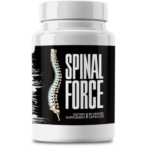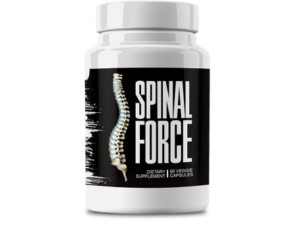This Village-Made Chinese Pain Reliever Eliminates Back And Joint Pain!
Why Does Arthritis in Legs and Knees Hurt More at Night?

Why Does Arthritis in Your Legs and Knees Hurt More at Night?
If you're living with arthritis in your legs and knees, you've probably noticed an annoying pattern—just when you're ready to sleep, the pain decides to throw a party. It's frustrating, exhausting, and can leave you feeling worse the next day. So why does arthritis love to act up at night? Let's break down the science behind nighttime flare-ups, what triggers them, and most importantly—how you can finally get some relief and better sleep.
Getting to Know Arthritis in Legs and Knees
Before we tackle nighttime pain, let's understand what we're dealing with.
What Exactly Is Arthritis in Legs and Knees?
Arthritis is basically your joints throwing a constant protest—inflammation and wear-and-tear that leads to stiffness, swelling, and that never-ending ache. Your knees get hit especially hard because they're the workhorses of your body, supporting your weight with every step.
The Usual Suspects: Types of Arthritis That Affect Your Legs
Not all arthritis is created equal. Here are the main types that might be bothering your legs:
- Osteoarthritis (OA): The "wear and tear" type that comes with age or overuse.
- Rheumatoid Arthritis (RA): Your immune system mistakenly attacking your joints.
- Gout: Those painful uric acid crystals that love to crash in your joints, often starting in the big toe but sometimes moving to the knees.
- Psoriatic Arthritis: A double whammy combining joint pain with psoriasis skin issues.
How to Spot Arthritis in Your Legs and Knees
Your body sends some pretty clear signals when arthritis moves in:
- That constant dull ache (or sometimes sharp pain) in your joints
- Morning stiffness that makes you feel like the Tin Man
- Swelling that turns your knees into balloons
- Creaky, crunchy sounds when you move
- Less flexibility—bending becomes a challenge
The Nighttime Pain Mystery: Why Arthritis Acts Up After Dark
Ever wonder why your joints save their worst behavior for bedtime? Here's what's really going on:
Your Body's Internal Clock Plays Tricks on You
Turns out inflammation has its own schedule—it tends to peak at night when your natural anti-inflammatory hormones (like cortisol) take a break. It's like your pain sensors suddenly turn up the volume when everything else is quiet.
When Staying Still Makes Things Worse
During the day, moving around keeps your joints lubricated. But at night? That lack of movement can make everything stiffen up. It's like your joints rust overnight and need oiling in the morning.
Your Brain Becomes a Pain Magnifier at Night
With no distractions, your brain suddenly becomes hyper-aware of every ache. Plus, if you're already tired from poor sleep, your pain tolerance drops—creating a miserable cycle of pain and sleeplessness.
How Nighttime Arthritis Pain Wrecks Your Sleep
This isn't just about discomfort—it's about how pain steals your precious sleep.
The Sleep-Pain Tug of War
When pain keeps you up, you might experience:
- Constantly waking up
- Tossing and turning all night
- Waking up feeling like you never slept
The Vicious Cycle You Need to Break
Here's the cruel twist: poor sleep makes pain feel worse, which makes sleep harder, which... you get the idea. Breaking this cycle is key to feeling better.
What Makes Nighttime Arthritis Pain Worse?
Several sneaky factors can turn up the pain volume at night:
When Cooler Temps Make Joints Stiffer
As temperatures drop at night, the fluid in your joints can thicken—like molasses in winter—making everything feel more stiff and achy.
How Your Sleep Position Can Betray You
That favorite sleeping position might actually be making things worse. Side sleepers, I'm looking at you—that knee-on-knee action creates extra pressure.
Fluid Build-Up While You Sleep
Lying still for hours can cause fluid to pool in your joints, leading to that lovely puffy feeling when you wake up.
Fighting Back: How to Ease Nighttime Arthritis Pain
The good news? You're not powerless against nighttime pain. Here's your game plan:
Smart Sleeping Positions for Happy Joints
- Back sleepers: Slide a pillow under your knees to take pressure off.
- Side sleepers: Hug a pillow between your knees—your hips will thank you.
- Stomach sleepers: Try to break this habit—it's tough on your neck and back.
Heat and Cold: Your Nighttime Pain Relief Team
A warm heating pad before bed can loosen up stiff joints, while an ice pack can calm angry swelling. It's like having a spa treatment for your joints!
When to Consider Pain Medication
Over-the-counter options like ibuprofen can help, but for ongoing issues, talk to your doctor about longer-term solutions that might work better for you.
Lifestyle Tweaks for Long-Term Relief
Small daily changes can make a big difference in how you feel at night.
Move It to Improve It
Gentle activities like swimming, yoga, or even walking help keep joints happy. Think of it as oiling the hinges on a squeaky door.
Eat to Beat Inflammation
Load up on foods that fight inflammation—think salmon, walnuts, berries, and leafy greens. Your joints will notice the difference.
Why Losing a Few Pounds Helps More Than You Think
Every extra pound puts more stress on your knees. Even losing just 10 pounds can feel like taking off a heavy backpack you didn't know you were wearing.
When It's Time to Call in the Pros
Sometimes you need to bring in reinforcements.
Red Flags That Mean You Should See a Doctor
- Pain that won't quit no matter what you try
- Joints starting to look deformed
- Sudden, severe swelling or redness
- Trouble walking or standing normally
What the Doctor Might Suggest
A specialist might recommend:
- Physical therapy tailored to your needs
- Special medications for autoimmune types of arthritis
- In severe cases, joint injections or surgery
Wrapping Up: You Can Tame Nighttime Arthritis Pain
While arthritis might be an uninvited guest in your life, it doesn't have to ruin your nights. With the right strategies—from pillow tricks to dietary changes—you can reclaim your sleep and wake up feeling more rested. And remember, if pain persists, there's no shame in seeking professional help. Better days (and nights) are possible!
Quick Tips to Remember
- Nighttime pain often comes from inflammation, stillness, and temperature changes
- Smart sleep positions and temperature therapy can work wonders
- Daily habits like movement and healthy eating make a huge difference
Your Turn: Share What Works for You
Living with arthritis means we're all in this together. Have you discovered any great nighttime pain relief tricks? Drop your best tips in the comments—your experience might help someone else get their first good night's sleep in ages!








